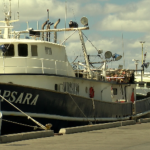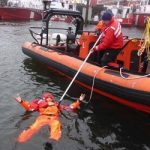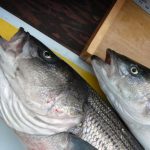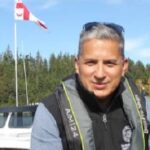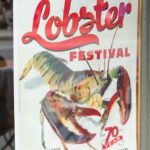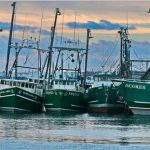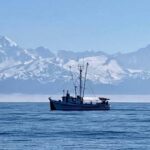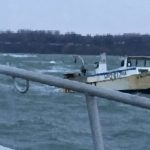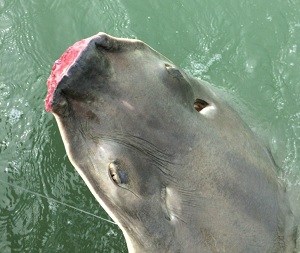Monthly Archives: December 2012
Federal government lists 2 ice seals as threatened. (here we go)
ANCHORAGE, Alaska — Two types of ice seals joined polar bears Friday on the list of species threatened by the loss of sea ice, which scientists say reached record low levels this year due to climate warming. Ringed seals, the main prey of polar bears, and bearded seals in the Arctic Ocean will be listed as threatened under the Endangered Species Act, the National Oceanic and Atmospheric Administration announced. A species is threatened if it’s likely to become endangered within the foreseeable future throughout a significant portion of its range.( A hundred years forseeable?) Read More

Coast Guard suspends search, Marine Board begins investigation – Vigil for lost scallopers planned for Sunday at Fishermen’s Memorial
 GLOUCESTER — While the U.S. Coast Guard has suspended its search for a vessel that went missing earlier this week, the Guard’s Marine Board of Investigations will now be conducting an investigation in an effort to find out what happened to that vessel, the Foxy Lady II and its crew. Meanwhile, a candlelight vigil is being planned for the crew of the Foxy Lady II in Gloucester, and is scheduled for Sunday at 5 p.m. at the Gloucester Fishermen’s Memorial on Stacy Boulevard.
GLOUCESTER — While the U.S. Coast Guard has suspended its search for a vessel that went missing earlier this week, the Guard’s Marine Board of Investigations will now be conducting an investigation in an effort to find out what happened to that vessel, the Foxy Lady II and its crew. Meanwhile, a candlelight vigil is being planned for the crew of the Foxy Lady II in Gloucester, and is scheduled for Sunday at 5 p.m. at the Gloucester Fishermen’s Memorial on Stacy Boulevard.
Angela Sanfillipo, president of the wives association, said the crew members were well known in town. “Just because they don’t live in Gloucester, that doesn’t mean they’re not our fishermen,” she said. Read More
Father and Son Charged with Possession of Over 400 Illegal Lobsters
Thomaston – From the Department of Marine Resources: Ricky Curtis, 48, of Union and his son, Todd Curtis, 29, of South Thomaston have been charged with illegal possession of v-notched and mutilated lobsters after an investigation by the Maine Marine Patrol. Over 400 of the illegal lobsters were discovered during an inspection of Mr. Curtis’ vessel “North Star” by Marine Patrol Specialist Read more
Senate Republicans seek to remove funds to assist fishermen from a Hurricane Sandy relief package.
Battle brews over disaster relief for Maine, New England fisheries
Sen. John Kerry, D-Mass., pointed out that five states in the middle of the U.S. received nearly $40 billion in funding for 68 federally designated disasters between 2004 and 2011. “We have more than five states asking for $150 million,” Kerry said in response to an earlier attempt to separate out the fisheries money. “I will just say point blank: This legislation is not going to pass without the inclusion of fisheries money.” Read more
national ocean policy coalition junk
NOAA Administrator To Step Down In February 2013 In an email to colleagues last week, NOAA Administrator Jane Lubchenco announced that she will step down in February. In making the announcement, Lubchenco provided a list of what she termed to be NOAA’s top 20 achievements during her tenure, including but not limited to the following: · Helping to create the “first National Ocean Policy that recognizes the value of a healthy marine environment, emphasizes collaboration between regions and the federal government and coordination across federal agencies…” · Setting a stronger course for endangered species conversation in the ocean · Developing and implementing a “One-NOAA” Arctic Vision and Strategy and Task Force Names mentioned in initial speculation on Lubchenco’s possible replacement included National Geographic Society Vice President and former NOAA official and Deepwater Horizon Oil Spill Commission Member Terry Garcia, U.S. Arctic Research Commission Chair and former Alaska Lt. Gov., University of Alaska Anchorage Chancellor, and Deepwater Horizon Oil Spill Commission Member Frances Ullmer, and Conservation International Chief Scientist and former NOAA fisheries official and member of the U.S. Commission on Ocean Policy and National Academy of Sciences Ocean Studies Board Andrew Rosenberg. READ MORE
New England Fishery Management Council Meeting Motions, December 20, 2012
December 20, 2012 Sheraton Colonial Wakefield, MA Council Meeting Motions –
When you get to the sight, click “COUNCIL ACTIONS” This is at the top.Council Meeting Actions – 2012
December 20, 2012 Sheraton Colonial Wakefield, MA
Click “COUNCIL AUDIO” Click “Groundfish FW 48 Discussion (AM) (few minutes at the beginning of discussion not recorded)
Listen in its entirety or left click the slider and move it to 1:55.00 to listen to the public comments
U.S. Reopens Waters Off New England for Fishing – NYT
Jud Crawford, the science and policy manager for the Pew Environment Group’s Northeast Fisheries program, said the decision to reopen protected waters could have dire consequences. “One of the concerns is that we will very quickly lose some very important breeding stock in these places,” Mr. Crawford said. The council’s vote is subject to approval by the National Oceanic and Atmospheric Administration’s Fisheries Program, which is expected to act by May. Read More
Fish panel holds off on limit cuts – “I say if you’re going to take 1 damn percent (more), shut the whole God damn thing down!”
 New England fishing regulators Thursday delayed voting on a series of significant cuts to fishermen’s 2013 allowable catch in groundfishing stocks after repeated and emotional warnings that the reductions would finish off an industry already grappling with a federally recognized economic “disaster.” The New England Fishery Management Council voted 15-2 to put off deciding on new catch limits for various bottom-dwelling groundfish species until their next meeting, scheduled for the end of January. Read More
New England fishing regulators Thursday delayed voting on a series of significant cuts to fishermen’s 2013 allowable catch in groundfishing stocks after repeated and emotional warnings that the reductions would finish off an industry already grappling with a federally recognized economic “disaster.” The New England Fishery Management Council voted 15-2 to put off deciding on new catch limits for various bottom-dwelling groundfish species until their next meeting, scheduled for the end of January. Read More
A very good year at Coastal Villages Region Fund – Deckboss
Eye-opening compensation levels at some of Alaska’s six Community Development Quota companies are old news. But still interesting. The example cited most often is that of Morgen Crow, executive director at Coastal Villages Region Fund. He made $475,000 in 2011, according to the company’s latest annual report. Read More
Kodiak shipyard losing money, higher rates likely
KODIAK, Alaska — Higher rates appear likely for users of Kodiak’s city-owned shipyard because it continues to lose money. The 3-year-old shipyard lost more than $300,000 in the last fiscal year, and now the Kodiak Port and Harbor Advisory Board has agreed that rate increases are needed to balance the books, the Kodiak Daily Mirror reported Wednesday. Kodiak’s shipyard is considered a do-it-yourself operation where the city provides space for ship owners to work on their boats using contractors based in the city. Read More
Red snapper policies to be discussed at meeting
CORPUS CHRISTI —According to federal fisheries managers we caught 1.6 million pounds more in gulf red snapper than we were allowed to this past season. This estimated overharvest along with the consequences will be discussed during an upcoming Florida meeting of the Reef Fish Management Committee of the Gulf of Mexico Fisheries Management Council. Usually I don’t report on the goings on with such committees because what they discuss is premature. Read More
The Wreckage of the Deepwater Horizon is Emitting a Mysterious Substance Into the Gulf of Mexico
But, hey, maybe it’s a coincidence. What could be causing oil slicks around an abandoned, decaying exploded oil rig? Could be anything. The Gulf’s three-eyed fish must be loving their new permanent neighbor. Read More
During the NEFMC meeting, Bill Karp appologized for the treatment of renowned scientist Doug Butterworth. What’s the buzz?
Who is Doug Butterworth?
Science for Hire: What Industry’s Deep Pockets Are Doing to Our Fisheries The Public Trust Project
It’s sunset in Woods Hole, Massachusetts, a time when the little town’s handful of shops board up for the night, and the lights click off at no fewer than six marine research institutes. But at the far end of the town, one block from the churning Atlantic, 10 weary scientists sit around a big square table arguing about cod. They’ve been at it since 8 a.m.. Each has blocked two weeks in his or her calendar for this single purpose. Read more
The Bottom Line: Don’t Remove Protection When Cod Need It Most.
New England is famous for cod fishing. But the industry is ailing—and the cure being proposed might be worse than the disease. Three months ago, the U.S. Commerce Department declared a “commercial fisheries disaster” off the coast of New England because populations of groundfish—cod, haddock, and flounder, among others—were still struggling to recover. More trash here.
Allison McHale – NOAA Federal – commercial summer flounder fishery in the New Jersey will be closed effective December 22nd, re-open on January 1st
NOAA announces today that the commercial summer flounder fishery in the New Jersey will be closed effective December 22nd since the state’s quota for this fishery has been reached. This closure has been closely coordinated with the State of New Jersey. The fishery is scheduled to re-open on January 1st. For a copy of the Fishery Bulletin announcing this closure, click here.
Your View: Fishery council must reject unreliable assessments – By Richard Canastra – southcoasttoday
I nearly always attend New England Fishery Management Council meetings in person, but last month, I was unable to attend the meeting in Newport, and instead listened to the proceedings online. I found that listening, and not physically being there, gives you a different perspective on a meeting. You hear more intently. There are fewer distractions. Examples seem clearer. Patterns emerge. There are some predictable patterns in life. When there is an accident, at the end of the traffic jam you find a police officer. When you go to a restaurant, at the end of dinner the bill comes. And when you attend a fisheries management council meeting that is dealing with a crisis, there is usually a bad stock assessment.
Bad stock assessments have become as predictable as the sunrise. Read More
Share and Share Alike
As a citizen advocate of the fishing industry, I have no confidence in NOAA stock assessments.
I spend a lot of time reviewing material, attempting to convey the results to as many people possible.
These listening sessions allow, as Mr Canastra stated, patterns to emerge.
The patter of Bill Karp, and Sam Rauch deviates not from the typical bureaucratic structure, much to my disappointment after listening to them from various venues, and reading a lot of information.
The revelations of the Georges Bank Yellowtail Flounder Working Group Meeting May 23, 2012, are the foundation of my opinion to condemn the stock assessments as a tool for fishery management, while enforcing Mr Canastras belief that the proper equipment is not being utilized to sample yellow tail flounder abundance.
As stated, patterns have emerged. The pattern of over looking details that have detrimental affects on stock assessments and confidence in them.
At the The New England Fishery Management Council’s three-day meeting in Plymouth Ma on 9/25/2012, a major detail confirmed the retrospective patter of no confidence in stock assessments conducted by NOAA.
During the 54th Stock Assessment Workshop (SAW)/Stock Assessment Review Committee (SARC) Meetings, a fisherman asked a question that received a hollow shrug of the shoulders answer that I find alarming, and telling that these assessments are substandard and incomplete.
The question was, “why is there no mention of herring as a predator species” in the ground fish assessment?
The answer. ” The SSC was, ah, not presented, ah, ah herring as a, ah, predator species….”
Yes. A Retrospective Pattern of the science used to mismanage this industry is established.
No confidence.
Thursday, December 20, 2012 NEFMC Council Meeting Webinar Registration Listen Live Sign Up Webinar Registration
New England Fishery Management
Council Meeting, will hold a one day Council Meeting at the Sheraton Colonial,
One Audubon Road, Wakefield, MA
Get your link https://www4.gotomeeting.com/register/204704735
NOAA region chief Bullard hedges on interim limits
The coalition theory was based on an interpretation of the Magnuson-Stevens Act for building a second year of relief — “reducing” rather than “ending” overfishing — while a plan to bring the stock to maximum sustainable yield is crafted.,“I’m not going to opine on whether you can squeeze another year out of (the Magnuson regulations),” Bullard said in a Thursday interview at the Times. “We’re willing to take a look at this at the meeting.” Read More
Our view: The good news is that Maryland’s oyster catch is up; the bad is that it’s unlikely to last
According to DNR records, the total number of people licensed to harvest oysters is now about 800, or twice what it’s been in years past. That means a lot of carpenters, house painters, landscapers and others are likely putting down their tools and heading out on the water — and were willing to pay $300 for a license to do so. Read More
LA Times Greenwashes Marine Life Protection Act Initiative – by Dan Bacher
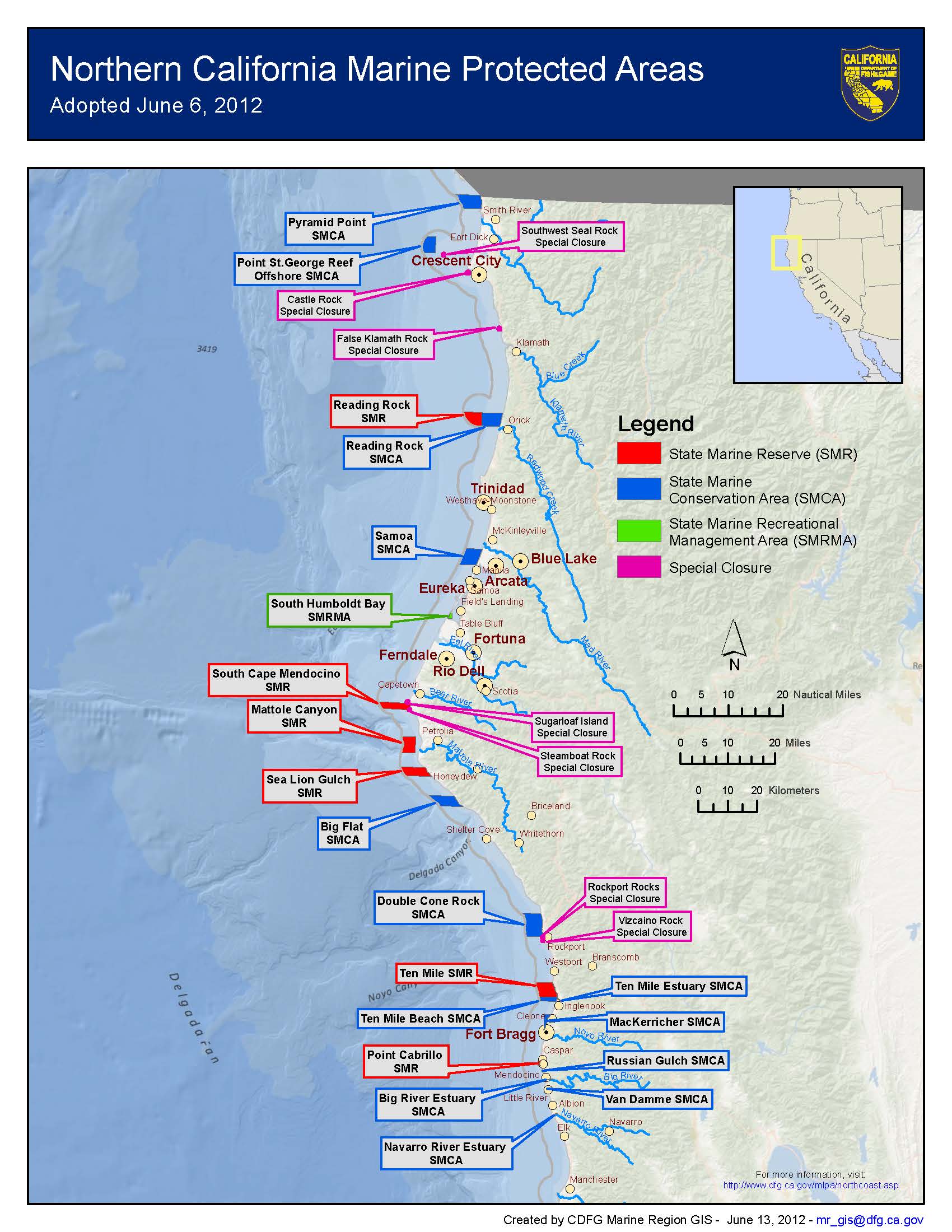 The LA Times falsely portrays the new closed zones as “undersea parks” when they are anything but. These so-called “marine protected areas” do not protect the ocean from oil spills and drilling, military testing, corporate aquaculture, wind and wave energy projects and all other impacts on the ocean other than fishing and gathering. Read More
The LA Times falsely portrays the new closed zones as “undersea parks” when they are anything but. These so-called “marine protected areas” do not protect the ocean from oil spills and drilling, military testing, corporate aquaculture, wind and wave energy projects and all other impacts on the ocean other than fishing and gathering. Read More
Protesters rally against fracking as oil industry claims it is ‘safe’ by Dan Bacher
“Last week, Secretary of the Interior Ken Salazar announced new lease-sales for Bureau of Land Management lands in California for ‘fracking’ development. Offshore areas are showing up on maps: reservoirs of underwater natural gas deposits, that lie under the ocean off Santa Barbara and Southern California,” he said………….”It’s clear that government and petroleum officials want to ‘frack’ in the very same areas Reheis-Boyd was appointed to oversee as a ‘guardian’ of marine habitat protection for the MLPA “Initiative,” said Gurney………It is beyond shameful that state officials such as Natural Resources Secretary John Laird and MLPA Initiative advocates embraced the oil lobbyist’s questionable role in creating alleged “marine protected areas” on not only the South Coast, but on the Central Coast, North Central Coast and North Coast. Read More
Another Federal Failure? Federal Sea Otter Relocation Off California Coast Ends in Failure
What types of impact will freely roaming otters have on California’s fishing trade?
The fishing industry is likely to be adversely affected as the sea otters continue to expand their habitat along the Southern California coast. The Los Angeles Times reports that the animals, which consume shellfish, are likely to hunt in the “waters reserved for fishermen.” During the translocation program, shellfish south of Point Conception was protected from the otters. Most heavily impacted are fishing industries specializing in harvesting shellfish stocks and sea urchins.
Update: Coast Guard carrying on search for scalloper
 The U.S. Coast Guard continued an air and sea search along the inshore waters of Massachusetts Bay today for two scallop fishermen whose boat the Foxy Lady II has been unaccounted for since mid-day Saturday.
The U.S. Coast Guard continued an air and sea search along the inshore waters of Massachusetts Bay today for two scallop fishermen whose boat the Foxy Lady II has been unaccounted for since mid-day Saturday.
The vessel’s orange rescue pod, resembling an astronaut’s recovery capsule, was found in a Saugus marsh at dark Tuesday, but the family of the captain, Wally “Chubby” Gray Jr., 26 of Deer Isle, Maine, continued to hold out hope today that Gray and his mate on the trip, Wayne Young, 50, also of Deer Isle, will be found alive perhaps with wreckage or at the 45-foot boat, said Jolena Rogers of Gloucester.
Rogers, Capt. Gray’s first cousin, said the Foxy Lady II had “other life saving equipment.”
“We’re trying to stay hopeful,” Rogers said, “but finding the pod … you know …” Read More (if you can)
Your View: UMD administration needs to explain changes at SMAST – southcoasttoday.com
Prior to that event and the arrival of Dr. Brian Rothschild and his associates, the domestic fishing industry was subjected to the science used for assessing fishing stock sizes and their use in fishing conservation plans. The law called for the fishery management councils to use the best available scientific information, and in the days before SMAST that meant that whatever the National Marine Fisheries determined to be the proper approach was indeed the gospel. Fishermen and the industry generally were put through management measures that not only didn’t make sense but ended up killing millions of pounds of seafood product, fish and scallops, subjected vessels to huge fines and loss of vessels, and resulted in a highly confrontational relationship between industry and government. Read More
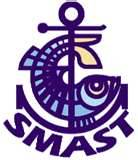
Iconic fisheries scientist loses key UMass post – Richard Gaines gdt
The decision to remove Rothschild from the co-directorship of the institute he helped found 10 years ago was signaled in a press release dated Dec. 11. It featured the announcement of a decision to suspend the operations of a neurotoxin lab; only secondarily did the release describe a restructuring of the Marine Fisheries Institute and then never mentioned Rothschild by name, but noted that Steve Lorhenz, dean of the School or Marine Science and Technology at the University of Massachusetts Dartmouth, had become co-director of the institute. The decision to remove Rothschild from the institute was made by Marcie Williams, the vice president for academic affairs, based on a review of MFI by Associate Vice President Robert Gamache, and was “agreed to” by Divina Grossman, chancellor of UMass-Dartmouth, John Hoey, Grossman’s chief of staff, explained in a telephone interview. Read More
Equipment from Foxy Lady II found in Saugus, Hull
A rescue pod, marked Foxy Lady II on the side, was discovered in a Saugus marsh Tuesday evening shortly before 5, around the same time the U.S. Coast Guard was calling off the night’s search for the missing Gloucester-based scalloper and its crew of two. The Foxy Lady II, manned by Capt. Wally “Chubby” Gray Jr., 26, and Wayne Young, 50, both of Deer Isle, Maine, had set out for a day trip of fishing on Stellwagen Bank early Saturday morning and was to return Saturday evening. The captain’s girlfriend reported the vessel overdue to the U.S. Coast Guard on Monday morning. Read More




































